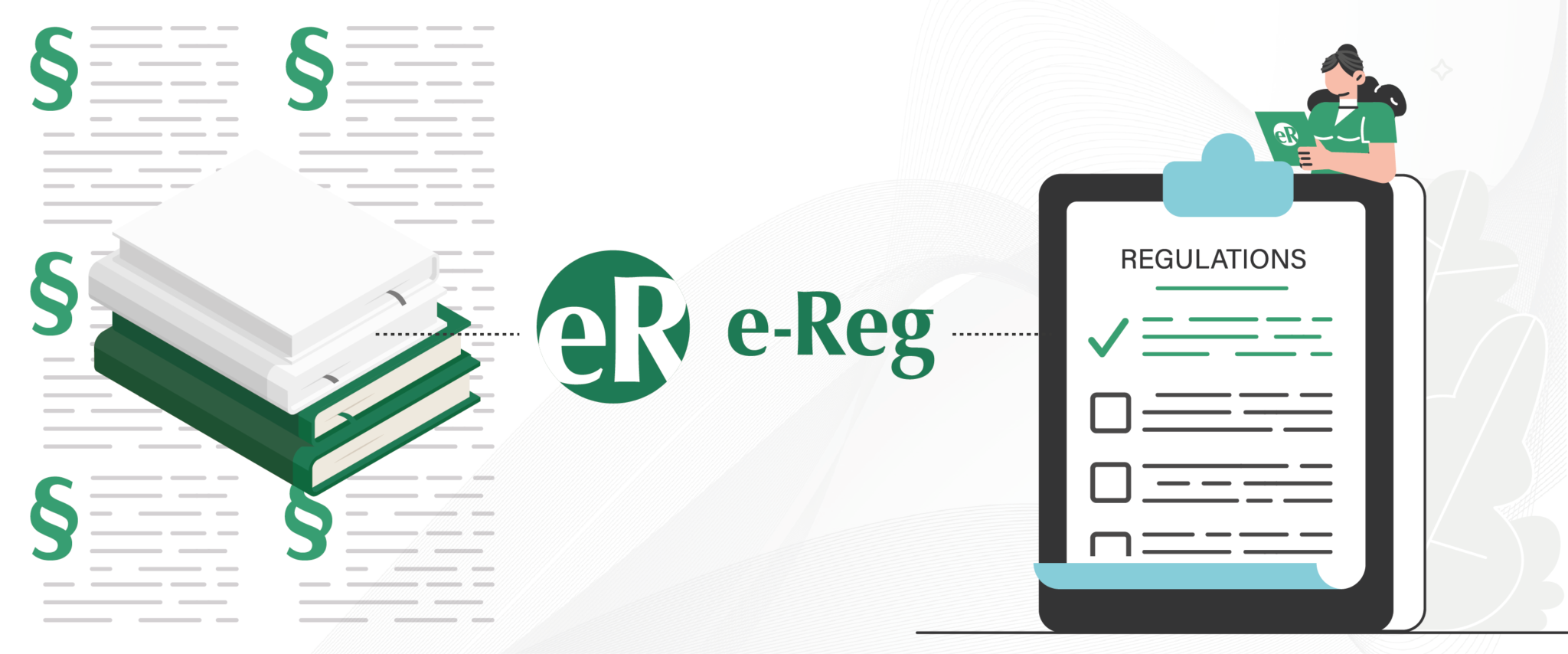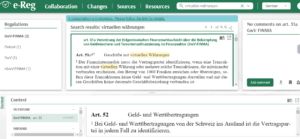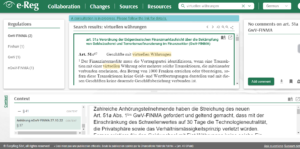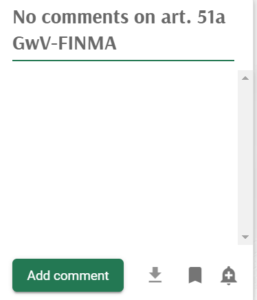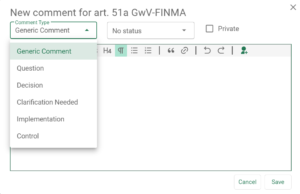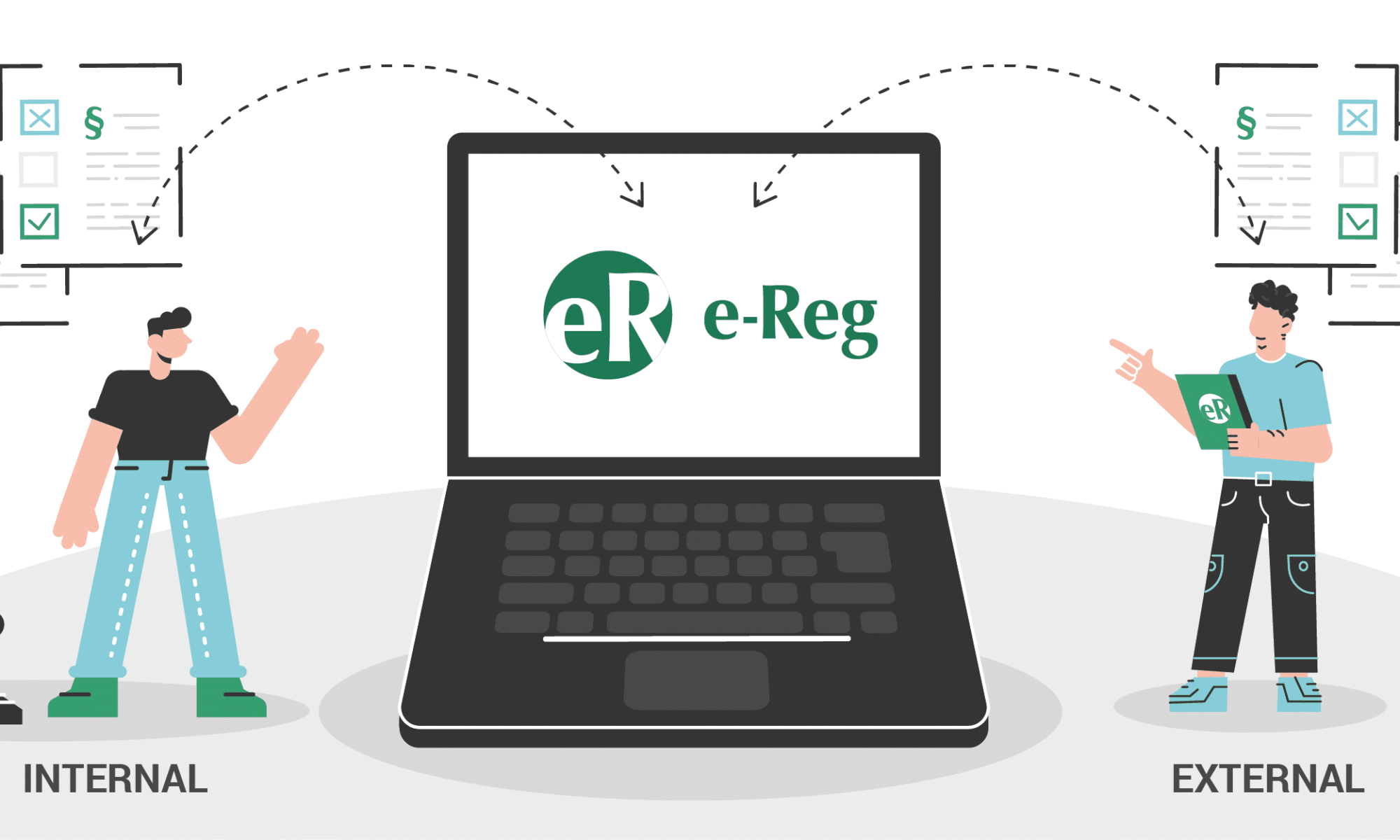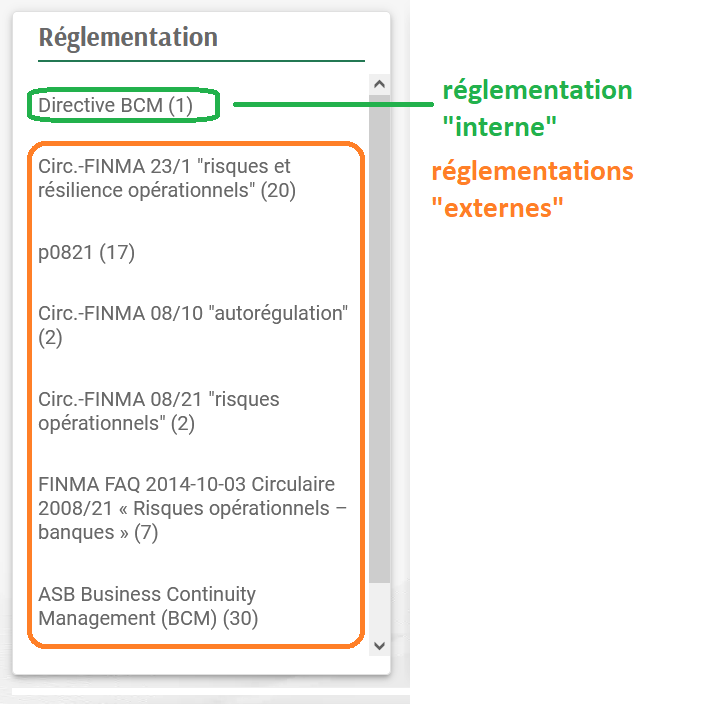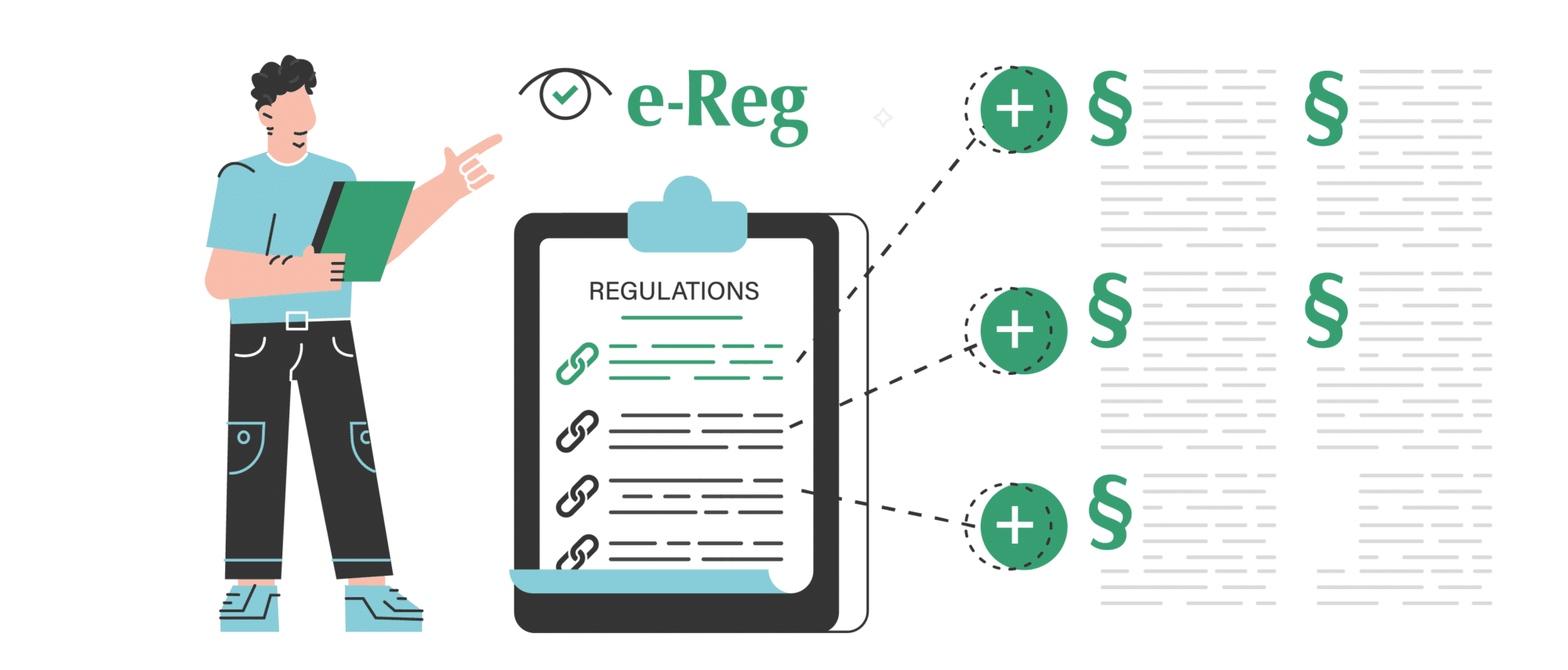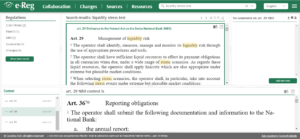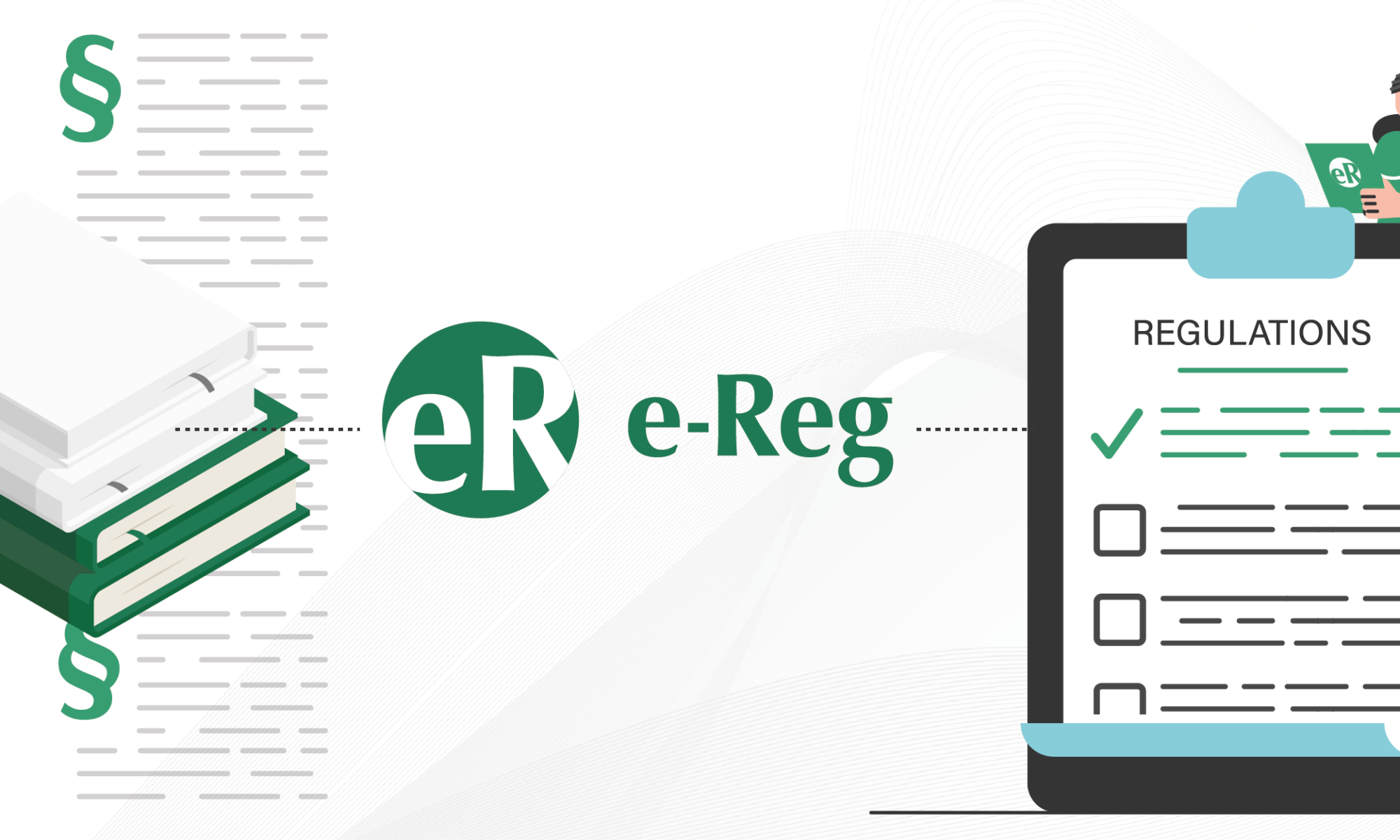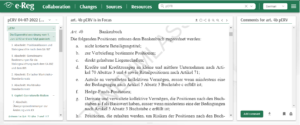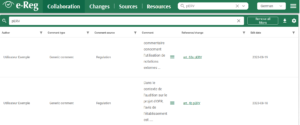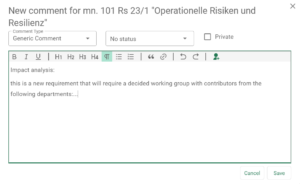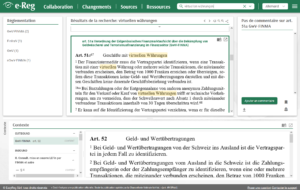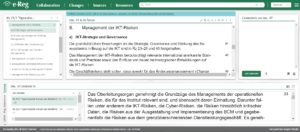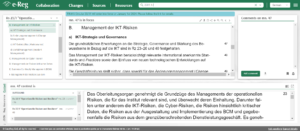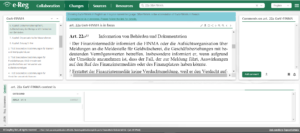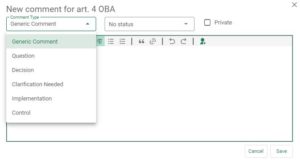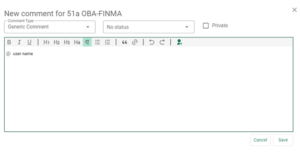e-Reg is a Swiss RegTech. It dematerialises and simplifies working with financial regulations. It also facilitates collaborative working in project mode. We take a closer look at the various type of e-Reg customers. Discover the features and benefits of our tool for each of them, whether they are professionals in the financial services sector, consultants or lawyers.
1 – e-Reg, a Swiss RegTech solution that focuses on managing financial regulation
Financial regulation remains an area that often lacks simplicity for its various players, whether they work directly in financial services or in a consultancy firm. Acts, ordinances and circulars issued by FINMA follow one another and add to one another as each global financial crisis unfolds. Rapid advances in technology (e.g. blockchain, AI) and new risks (nature, etc.) are also giving rise to new regulations.
1.1 – Financial regulation can be simplified
We firmly believe that the regulatory complexity experienced in Switzerland can be mitigated. We know, from our own experience in the Swiss banking industry, that there is a need for a tool to make regulatory work easier. Hence, we developed e-Reg, a cutting-edge RegTech platform, to alleviate the burdens associated with regulatory compliance for all stakeholders involved.
1.2 – The essential functionalities of e-Reg for financial regulation
e-Reg users have access to two types of RegTech services for their financial regulation activities.
1.2.1 – Document management
e-Reg is first and foremost a search tool for acts, FINMA ordinances and circulars, texts relating to self-regulation, and so on. Our RegTech solution provides the full context of a search as well as regulatory developments, such as the Basel III final. The results include clickable links for easy navigation from one regulation to another.
e-Reg also allows users to consult procedures and directives internal to the financial institution, which enriches the analysis. Users can also add comments and have access to online libraries.
1.2.2 – Collaborative management in project mode
e-Reg can also be used to manage cross-functional projects such as :
- Transferring knowledge between teams, particularly in the event of absences during holidays and when new recruits are hired with little training in regulations.
- Implementing a regulatory change and collecting internal analyses in the event of consultation with the authorities or during an impact study on a new regulation.
2 – e-Reg, a solution for the financial services sector within Swiss banks
The first category of customers targeted by e-Reg are employees in the Swiss banking sector who are faced with the issue of compliance and regulatory requirements.
2.1 – e-Reg, a natural solution for departments managing regulatory monitoring
The ‘regulatory monitoring’ departments, which are responsible for ensuring that all Swiss or foreign regulatory changes are captured and managed, are natural users of the e-Reg solution.
These employees use the various monitoring features to keep up with the latest news and the change tracking features to ensure that every change has a responsible party and is managed by the institution.
2.2 – The benefits of e-Reg for the bank’s finance department
The finance function frequently faces decisions that significantly influence regulatory ratios and compliance across diverse regulations. Navigating these realms entails referencing myriad texts, often layered with overlapping regulations. Moreover, professionals in the banking sector must contend with the additional complexity of adhering to foreign regulatory frameworks.
It’s essential to have the right information at your fingertips to avoid mistakes and negative comments from the regulator. A finance department has everything to gain by using e-Reg to structure its research and analysis. What’s more, it’s also a way of improving regulatory knowledge and training thanks to our platform.
💡 Find out how RegTech makes it easier to document special treatments.
2.3 – e-Reg’s collaborative function, a real plus for in-house lawyers
They sometimes carry out regulatory monitoring, a task for which they rarely have powerful tools. This is precisely one of the strengths of our RegTech solution. In fact, e-Reg systematically provides all the context surrounding a regulatory search, including draft changes to legislation. Everything is directly integrated in the same place, making analysis easier. The person in charge of the watch can easily add comments. They can notify a colleague. All their work remains tracked and accessible from the dashboard.
2.4 – Risk managers: potential users of RegTech
These professionals make extensive use of regulation in their risk monitoring activities. They take a close interest in regulatory changes, even if they do not personally manage such projects. They appreciate the functionalities of our e-Reg platform for its regulatory work and research. This ensures that the bank reduces its risk of non-compliance.
3 – e-Reg, a platform for professionals advising banks on financial regulation
Banks and financial institutions call on external specialists to manage regulatory compliance. e-Reg is also aimed at all these potential players in financial regulation in Switzerland.
3.1 – Financial regulation consultancies
There are many companies involved in financial regulation in Switzerland. The largest are generalists. Others, smaller and more specialised, offer specific expertise. In both cases, RegTech is a real asset for these professionals to increase efficiency and deliver more value to their clients.
3.1.1 – Partners and employees of small firms involved in financial regulation
In these small, multi-skilled structures, using RegTech for regulatory management and research provides immediate work comfort for employees. In their compliance missions, they have to carry out numerous searches in thousands of pages of regulations.
The tool provides them with :
- fast and efficient search ;
- exhaustive coverage of current regulatory sources and planned developments, with full context;
- features for sharing information within the firm, which is also a good way of improving staff training.
3.1.2 – Junior consultants in large audit firms
Even large companies have every interest in using our RegTech solution, particularly for their junior consultants. It provides them with a totally digitised way of finding their way through the various layers of regulation and of learning.
e-Reg’s functionalities help managers to share their analyses of regulatory developments and the regulations in force with younger colleagues. They can also assign tasks directly in the tool and notify them. They can monitor progress on the dashboard.
In addition, e-Reg offers the option of adding the firm’s own policies and directives to the platform, in a private and segregated environment. This enriches the regulatory analysis and helps junior members to apply internal rules and guidelines.
3.2 – Law firms working with Swiss banks
The last typical client group for e-Reg is lawyers. As in the case of consultancy firms, large specialist firms work alongside smaller structures. The latter are multidisciplinary and work on a case-by-case basis on regulatory issues.
4 – IT solution providers for banks
The e-Reg solution is also used by a specialist banking software publisher to ensure that their solution takes into account the latest regulatory developments and thus anticipates customer needs.
5 – Conclusion
Even though all professionals in the financial industry are used to using websites specialising in financial regulations, the demonstration of our tool shows that technology saves them time. They work faster. They can keep perfect track of their analyses as the texts are commented on.
RegTech provides simple, operational solutions for most players in financial regulation. With e-Reg, our customers gain in efficiency. They reduce the cost of compliance. They also make it easier to pass on knowledge within their teams, which is essential for junior staff as well as for collaborative projects. To improve your understanding of the tool, sign up for an online demonstration of e-Reg.
👉 Sign up for our Newsletter to keep up to date with the latest regulatory news and follow any announcements of new rules or major changes.





